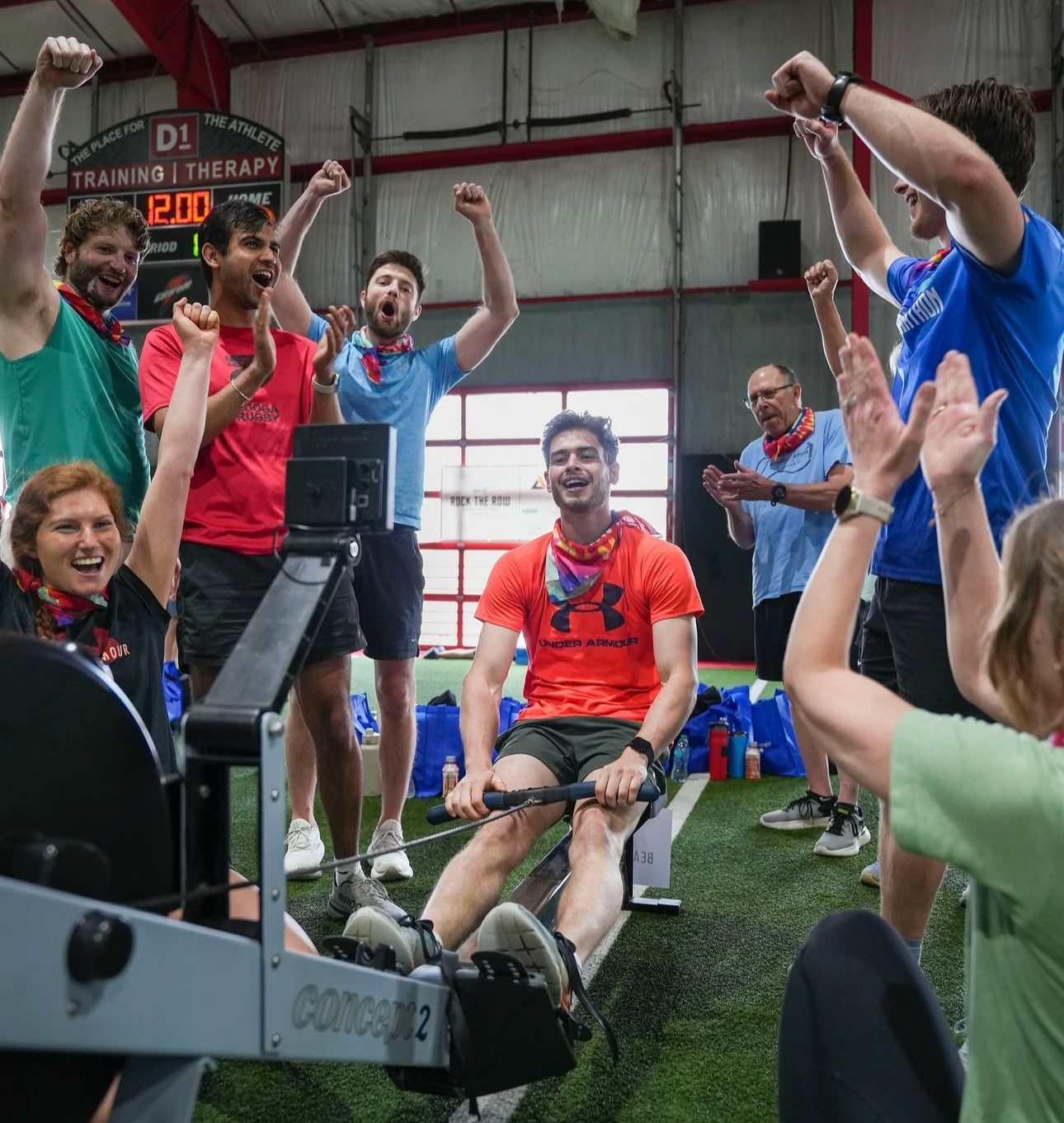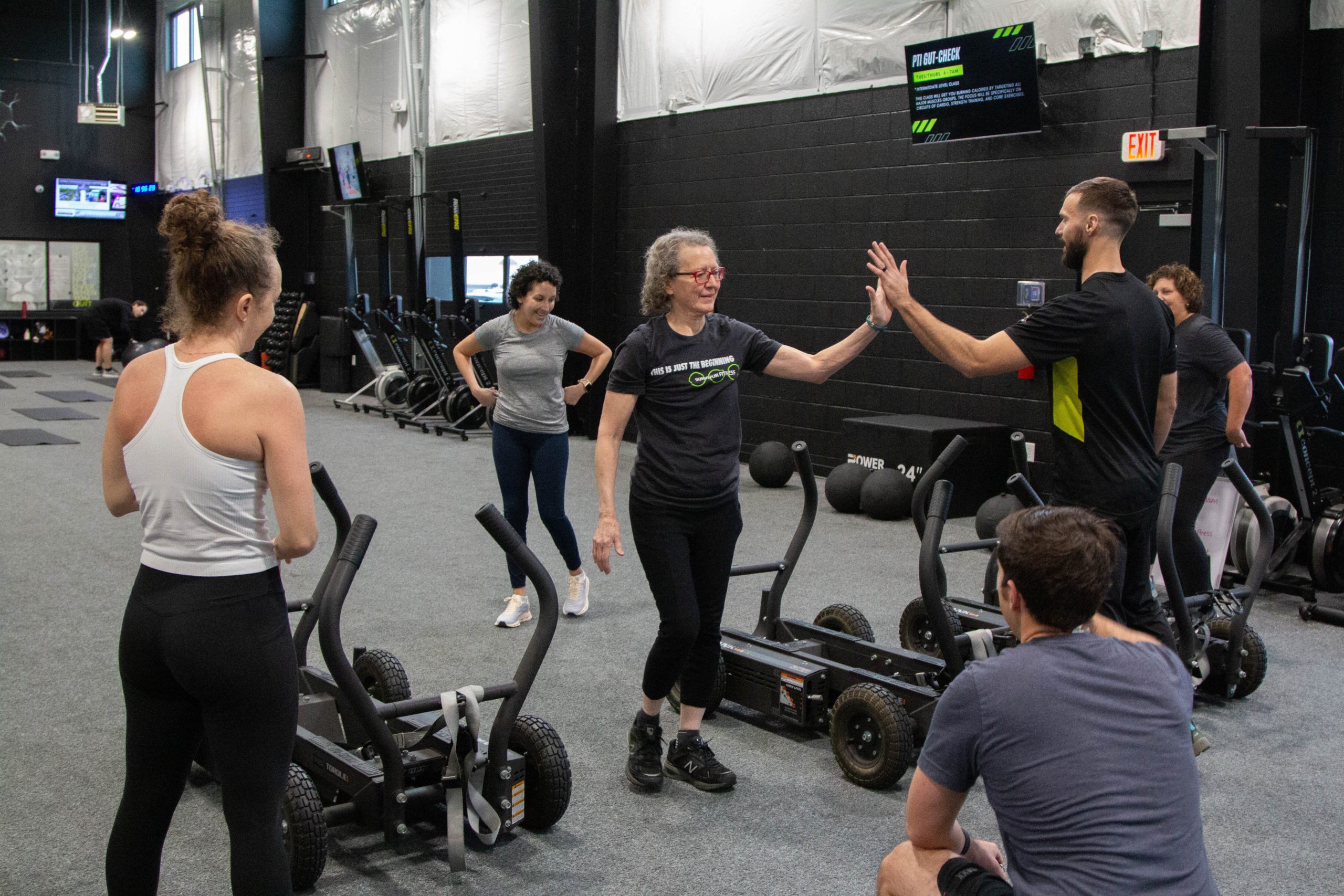Exercise is one of the most effective tools for long-term healing after cancer. In fact, a recent study published in the Journal of the National Cancer Institute found that recommended levels of physical activity significantly reduced the risk of dying from several common types of cancer. And here’s the best part: the more a person exercised, the better their odds.
But figuring out where to begin with exercising after cancer treatment can feel overwhelming. You might wonder what your body is capable of, worry about doing too much too soon, or simply feel unsure about how to start moving again. And let’s be honest—taking that first step is even harder if you’re doing it alone.
That’s exactly why Survivor Fitness exists. We were founded to make sure cancer survivors don’t have to navigate life after treatment by themselves. Whether it’s working one-on-one with a certified fitness coach, building a healthier relationship with food through nutritional guidance, or finding emotional support with a licensed therapist, we believe in the power of walking alongside one another.
The Benefits of Partner Workouts After Cancer
Working out with a spouse, a friend, a family member, or a coach can make fitness more fun and boost your recovery and overall well-being in some surprising ways.
1. A Support System Beyond Treatment
When treatment ends, the support you had during that season from doctors, nurses, and caregivers often fades. But the need for support doesn’t end when treatment does. You still need people in your corner. Partner workouts create a sense of community and shared purpose that can be incredibly grounding during recovery.
At Survivor Fitness, we see this every day. Participants show up for their first session feeling uncertain or even a little fearful. But by the end, they’re stronger and more confident, often walking away with lasting friendships.
Survivor Fitness participant Michael Burke’s story is a great example of this. His words about his trainer Jordyn, showed a deep and meaningful connection.
“She has become a great friend, and I am convinced that she and Olivia Fazini, another trainer at the gym, have quite literally kept me alive.”
2. Motivation and Accountability
Some days, it’s just hard to show up. Finding the motivation to exercise after cancer treatment can be tough. But when you know someone else is counting on you, it’s easier to stick with your routine. Partner workouts give you that extra nudge on the tough days, and they’re a reason to celebrate your wins together when you hit a new milestone.
Some Survivor Fitness participants even enjoyed the power of partner workouts from a distance. Here’s how one individual described her online sessions with a trainer:
“Emma made the class fun, and I gained strength week by week. It is not easy with age, but I am grateful that she helped me obtain my goal of getting stronger again.”
3. Emotional Connection
Cancer can feel isolating, and that isolation doesn’t always disappear once treatment is over. Exercising with someone you trust can create space for meaningful conversation, laughter, and emotional connection. You’re working on your physical health while also building mental and emotional health.
As Survivor Fitness participant Karin Downs explained, “The Survivor Fitness Program renewed my confidence in my body and my ability to do various activities; it has reminded me that I can do almost anything if I work hard, persevere, and stay committed to the activity or task—and also to trying new things.”
4. A Shared Path Forward
When you work out with a partner, you’re improving your own health while investing in someone else’s journey. Whether they’ve also faced cancer or they’re just showing up to support you, there’s something powerful about working toward wellness together.
Survivor Fitness participant Suzanne Gaulden is a great example of the mutual connection that can be found in having a partner walk alongside you.
“I got stronger, faster, and I feel fitter. But more than anything, I made a friend that I will have for a long time. Ainsley was the perfect trainer for what I needed at that time in my life.”
Resources to Help You Get Started
Not sure where to start? We’ve pulled together a few of our favorite resources to help you and your workout partner build a routine that works for both of you.
- Science-Backed Strategies for Fitness and Nutrition — These five key strategies are supported by research and have shaped the way we approach our programs at Survivor Fitness.
- 15 Fun Partner Workouts — Looking for something fun and easy to try with a spouse or friend? These ideas are beginner-friendly and designed to help you get moving together.
- Outdoor Exercise Activities for Cancer Survivors — When the weather’s nice, take your workout outside. Fresh air, sunshine, and movement are a powerful combination for mood and health.
- How to Adapt Exercise as You Age — Every person is different, especially after cancer treatment. This guide offers practical ways to adapt your workouts in a way that honors your age, your energy, and your experience.
You Don’t Have to Do This Alone
If you’re just finishing treatment or you’ve been in survivorship for a while, you don’t have to figure it out alone. Our programs at Survivor Fitness are designed to meet you where you are and walk with you every step of the way. Personal connection and encouragement are at the heart of everything we do, and we’ve seen our programs transform hundreds of lives.
Apply today or reach out to talk with someone from our team.
And don’t forget to follow us on Facebook to stay in the loop about upcoming group fitness classes, events, and more ways to connect with other survivors and supporters.









